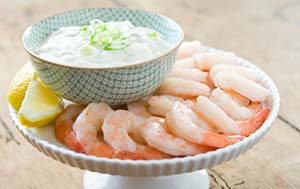The British Frozen Food Federation (BFFF) is urging India’s Ministry of Commerce and Industry to redouble efforts to prevent a ban of imports of Indian seafood exports by the European Union (EU), according to a report in the Business Standard, a New Delhi-based newspaper.
“The EU is apparently unhappy due to increasing incidences of traces of antibiotics being found in seafood products from India,” wrote correspondent Nirmalya Behera. “In 2016-17, the EU accounted for 18% of the $5.78-billion seafood exports from India.”
Behera’s article quoted part of a letter to Commerce and Industry Minister Nirmala Sitharaman recently dispatched by John Hyman, chief executive of the BFFF, as follows:
 “During a very productive meeting on August 8, 2017, with Sarvesh Rai of the Indian Mission to the EU, we were informed that India has undertaken several steps to satisfy the European Commission. The indications we are receiving from the Commission are that these are not enough…We implore you to take this message very seriously.”
“During a very productive meeting on August 8, 2017, with Sarvesh Rai of the Indian Mission to the EU, we were informed that India has undertaken several steps to satisfy the European Commission. The indications we are receiving from the Commission are that these are not enough…We implore you to take this message very seriously.”
The European Commission is “extremely dissatisfied” with alleged “continued non-compliance and the lack of progress made by the Indian authorities,” according the Business Standard.
Last year, the EU bolstered its inspection norms for sample testing of Indian aquaculture products from 10% of imports to 50%. Thereafter, according to the Business Standard: “Trade sources said there has been an increase in the number of rejections of Indian shrimps because of the presence of antibiotics. The EU is also believed to be directly banning factories whose products have been rejected.”
Nonetheless, India ranked as the world’s No. 1 exporter of shrimp in 2016, reported the Globefish unit of the Food & Agriculture Organization (FAO) organization of the United Nations. Exports weighed in at 438,500 tons, up 14.5% over 2015. Overseas sales of value-added shrimp skyrocketed by 130% last year to 23,400 tons from 10,100 tons in 2015. Much of the volume went to buyers in the United States.
Rounding out the top five shrimp export nations in 2016 were: Vietnam, up approximately 20% to 425,000 tons; Ecuador, +7.8% to 372,000 tons; Indonesia, +21% to 220,000 tons; Thailand, +22% to 209,400 tons.





